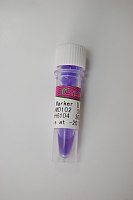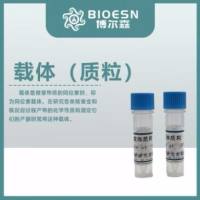Nonradioactive Genomic DNA Blots for Detection of Low Abundant Sequences in Transgenic Maize
互联网
588
Sensitive and reproducible genotyping tools are fundamental in interpreting and substantiating genetic data. In cases where alternative assays like PCR are not applicable, a sensitive genomic Southern protocol is needed. Our maize gene discovery work using the RescueMu transgenic lines was such a task. The direct proof of each new germinal insertion event can be assessed only on a genomic DNA hybridization analysis, and therefore we developed the following protocol to screen efficiently through hundreds up to thousands of samples in a relatively short time. The DNA extraction protocol was scaled to accommodate samples processed in a microcentrifuge with consistent yield of ∼50 μg of high molecular weight DNA. A trained person can easily process several hundred samples in a few days. Once the DNA is extracted, final results can be obtained routinely within a week on ∼100 or more samples, depending on the capacity of the electrophoresis and hybridization apparatus available. Under our optimized conditions, the method described below generates blots with high sensitivity and low background even after repeated stripping and reprobing. Single to low-copy transgenes as well as maize genomic sequences can be detected consistently. The nonradioactive DNA probes employed are not only safer, compared to the conventional radioactive probes, but also greatly shorten the exposure time. Confident estimation of copy number – as good as quantitative PCR – and visualization of transgene complexity are just a few more advantages of this protocol.









